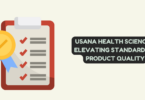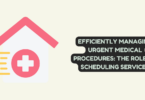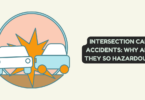
Personal Injury
Personal injury disputes arise when an individual suffers harm due to another party’s negligence or intentional actions. These disputes often involve seeking compensation for injuries sustained, medical expenses, lost wages, and pain and suffering. Resolving personal injury cases can be achieved through various settlement methods, avoiding lengthy court trials and associated expenses.
1. Negotiation
Negotiation is a direct discussion between the parties involved or their legal representatives to reach a settlement agreement. It involves back-and-forth communication to agree on a fair compensation amount without involving the court system.
2. Mediation
Mediation is a non-binding process where a neutral third party, the mediator, helps facilitate discussions between the parties to find a mutually acceptable resolution. The mediator assists in exploring settlement options but does not make decisions; instead, the parties retain control over the outcome.
This one’s like a sit-down chat where both sides try to find common ground. It’s quicker and cheaper than going to court, but sometimes, you might not get the entire deal. It’s not the best option for resolving more complex disputes.
3. Litigation and Arbitration
The Heavyweights Now, if things get really messy, you might need to go down the litigation road. That’s like filing a lawsuit, showing evidence, and making your case to a judge and jury. It sounds intense, but if you have a solid lawyer, it can be your best bet to score a fair settlement. According to Davis Kelin, a skilled personal injury lawyer will present your case, cross examine witnesses, and argue on your behalf to secure the best possible outcome.
Arbitration involves a neutral third party, the arbitrator, who reviews the evidence presented by both parties and makes a binding decision on the settlement. This method is less formal and faster than a trial, but the decision is final and legally binding.
4. Pre-Trial Settlement Conference
Before going to trial, courts often conduct pre-trial settlement conferences where a judge assists the parties in negotiating a settlement. This can be an opportunity to resolve the dispute without the need for a trial.
5. Demand Letters
A demand letter is a formal written document sent by the injured party or their attorney to the at-fault party or their company. It outlines the details of the injury, the compensation sought, and a request for settlement before pursuing legal action.
6. Structured Settlements
Structured settlements involve agreeing on a series of payments over time instead of a lump sum. This method can provide financial security and tax advantages, offering regular payments for an extended period.
7. Release of Liability Agreement
A release of liability agreement is a legal document signed by the injured party, releasing the at-fault party from further liability in exchange for a settlement amount. Once signed, the injured party cannot pursue further legal action related to the incident.
8. Alternative Dispute Resolution (ADR) Programs
Some courts offer ADR programs that encourage parties to resolve disputes outside of court through mediation or arbitration, aiming for a faster and more cost-effective resolution.
9. Collaborative Law
Collaborative law involves both parties and their attorneys working together in face-to-face meetings to find a resolution. If an agreement cannot be reached, the attorneys involved cannot represent the parties in any subsequent litigation.
Why Use Settlement Methods for Personal Injury Disputes?
Utilizing settlement methods for personal injury disputes offers several advantages. They are often faster, less expensive, and allow parties to maintain more control over the outcome compared to lengthy and unpredictable court trials. Settlements can also reduce emotional stress and uncertainty associated with legal proceedings.
Frequently Asked Questions (FAQs) about Settling Personal Injury Disputes
- Is it better to settle a personal injury case out of court? Settling out of court can be advantageous as it is often quicker, less costly, and allows parties more control over the outcome compared to trials.
- Can I negotiate a personal injury settlement without an attorney? While possible, having legal representation can significantly impact the negotiation process and ensure fair compensation.
- How long does it take to settle a personal injury case? Settlement times vary widely based on the complexity of the case, negotiations, and the chosen settlement method. It can range from a few weeks to several months or longer.
- What factors determine the settlement amount in a personal injury case? Factors include the extent of injuries, medical expenses, lost wages, pain and suffering, and the degree of negligence or fault.
- Can I still sue after accepting a settlement offer? Generally, accepting a settlement offer involves releasing the at-fault party from further liability related to the incident, barring further legal action.
- Are settlements taxable? In most cases, compensation for physical injuries is non-taxable, but consult with a tax professional for specific details.
- What if I cannot reach a settlement agreement? If a settlement cannot be reached, the case may proceed to trial, where a judge or jury will make a decision.
- Is arbitration binding in a personal injury case? Arbitration can be binding or non-binding, depending on the agreement between parties before starting the process.
- Can I use multiple settlement methods simultaneously? Parties can explore multiple settlement methods simultaneously to find the most effective resolution.
- Can minors settle personal injury claims? Minors usually require court approval or a guardian’s consent to settle a personal injury claim.
- Can a personal injury case be settled after a lawsuit is filed? Yes, settlements can occur at various stages of the legal process, even after a lawsuit is filed but before a court verdict.
- Is there a statute of limitations for settling a personal injury case? Yes, there are time limits within which a lawsuit or settlement must be filed. These limitations vary by state and type of injury.
- Can I change my mind after accepting a settlement offer? Once a settlement offer is accepted and the agreement is finalized, it is generally legally binding and cannot be reversed.
- Do I need an attorney for mediation or arbitration? While not always mandatory, having legal representation in mediation or arbitration can be beneficial to ensure fair representation and understanding of legal rights.
Conclusion
Settling a personal injury dispute through various methods offers flexibility, control, and potential benefits for both parties involved. However, it’s essential to consider individual circumstances and seek legal guidance for the most appropriate approach to achieving a fair resolution.






